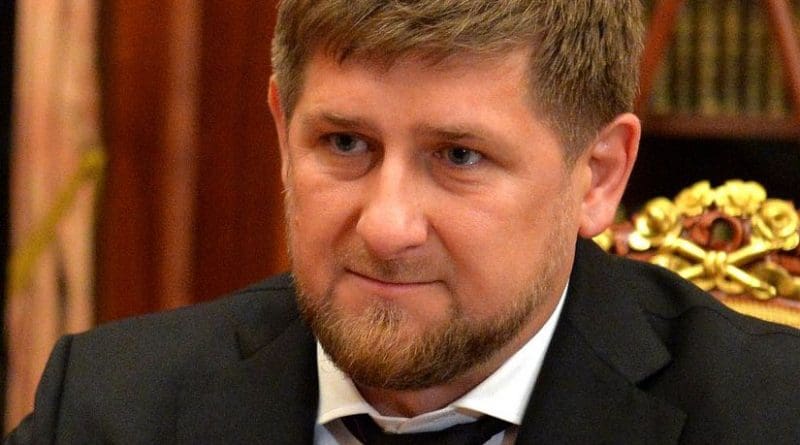Pushkin Wanted People to Study the Koran, Chechen School Children Told
By Paul Goble
Chechen President Ramzan Kadyrov has done many things that one might reasonably expect would offend people of good will in Russia, but now he and his administration have taken a step certain to offend many of them: suggesting that Chechen pupils that Russia’s national poet Aleksandr Pushkin wanted everyone to study the Koran.
In an article in yesterday’s “Gazeta,” Olesya Gerasimenko notes that Chechnya is one of the 19 regions of the Russian Federation in which the foundations of religious culture and civic ethics has been introduced, with 99.64 percent of all pupils there selecting Islam as their course of study (www.gazeta.ru/social/2010/05/05/3362767.shtml).
Only 73 of the 20,000 students in the fourth class, the Moscow journalist says, have chosen to study Orthodoxy. And that tilt, she continues, is reinforced by two other developments, one that has attracted some attention and another that few Russians appear to know about.
On the one hand, Chechen leader Kadyrov has said that “in each village there must be a mosque, a hospital and a school,” hardly the commitment of a secular leader or one interested in supporting all “traditional” faiths. And on the other, pupils in the fifth through the 11th classes already study “Waynakh ethnics,” the single subject taught exclusively in Chechen.
In these classes, Gerasimenko notes, students are taught “how to interact with their parents, meet their obligations and celebration national holidays, in short about the Muslim way of life but not about the religion as such.” And the Chechen authorities have decided that “even children from Russian families must study Islamic culture” in the religious courses.
The “Gazeta” journalist visited several of these classes. In one, the teacher asked “how was Aleksandr Sergeyegich Pushkin connected with Islam?” One student responded, “He was sent to the Caucasus and then he found he liked Muslims very much, especially the idea that when you believe in God, then everything will go well.”
Another said that “Pushkin himself wanted to accept the Islamic faith, but he wasn’t able to do so!” And the teacher summed up the discussion: “However things were in fact, we hardly know will be able to find out. This means that Pushkin, like all the prophets, is calling on us to study the Koran,” hardly a message many Orthodox Russians would find comforting.
Gerasimenko notes that “in the 30 lessons of the textbook about Islamic culture, there is nothing about Shiites and Sunnis and not a word about Wahhabism.” In general, she says, teachers are to avoid the subject of Wahhabism, although if asked about it, the teachers can say that a Wahhabi is not a Muslim.
Whatever impact these messages have on Muslim children, the way they affect non-Muslims is at a minimum problematic. One Armenian Christian noted that her baptized son was nonetheless being told about Islam and that in his classes, he had been careful not to talk about his own faith.
A local Russian Orthodox priest expressed his concerns about Christian children in Muslim classes. He said many Orthodox believers in Chechnya are asked “why they do not accept Islam and so on.” That represents, he suggests, the actions of what can only be called “a concealed Islamization.”
“You must understand,” he told the Moscow journalist, “that it is one thing to say ‘I’m Orthodox in Ryazan, and [quite] another to say the same thing in Grozny.” That is clearly a reality, but it may not be one that many elsewhere will be happy with and may even lead to a decline in the number of people who support the very idea of religious courses in schools.

